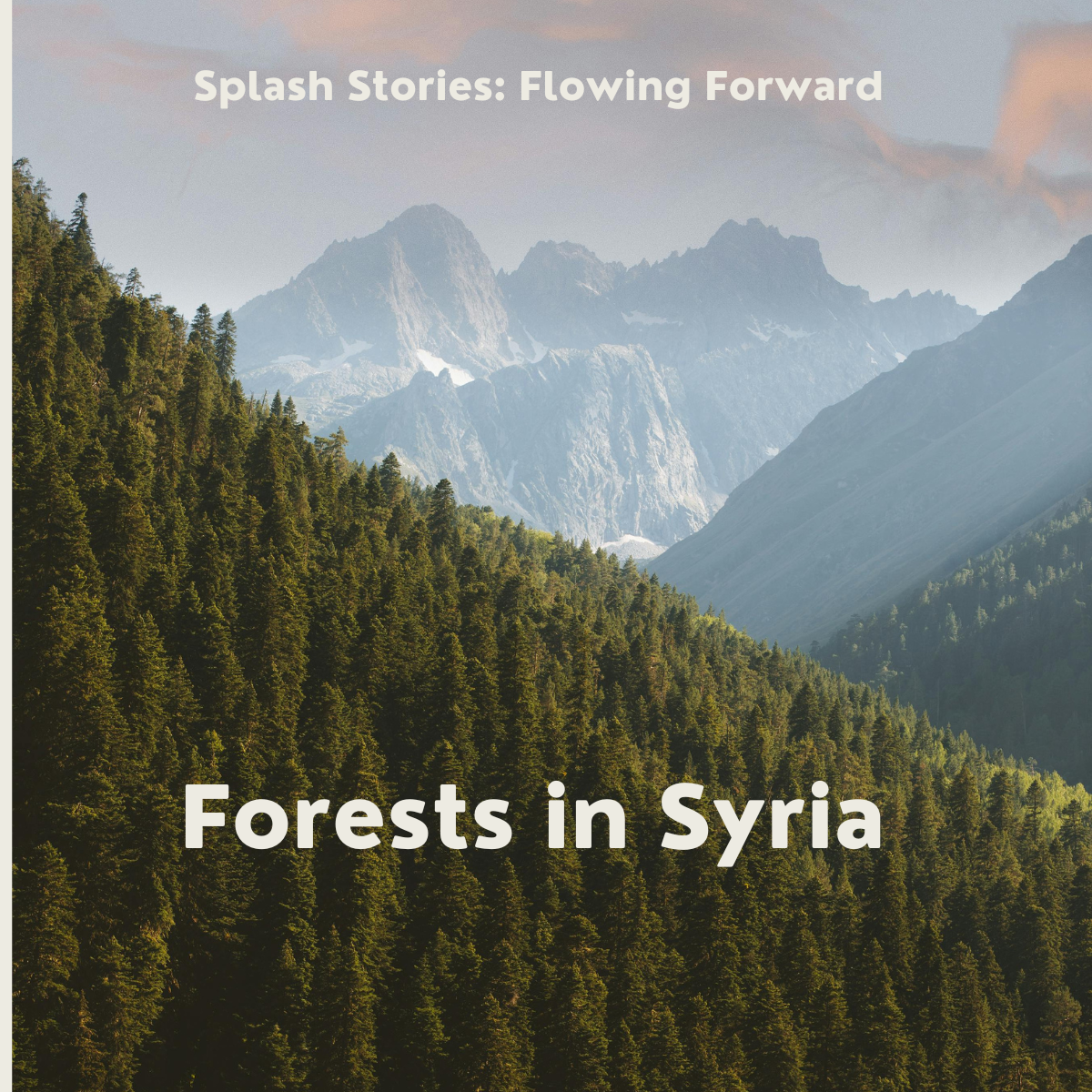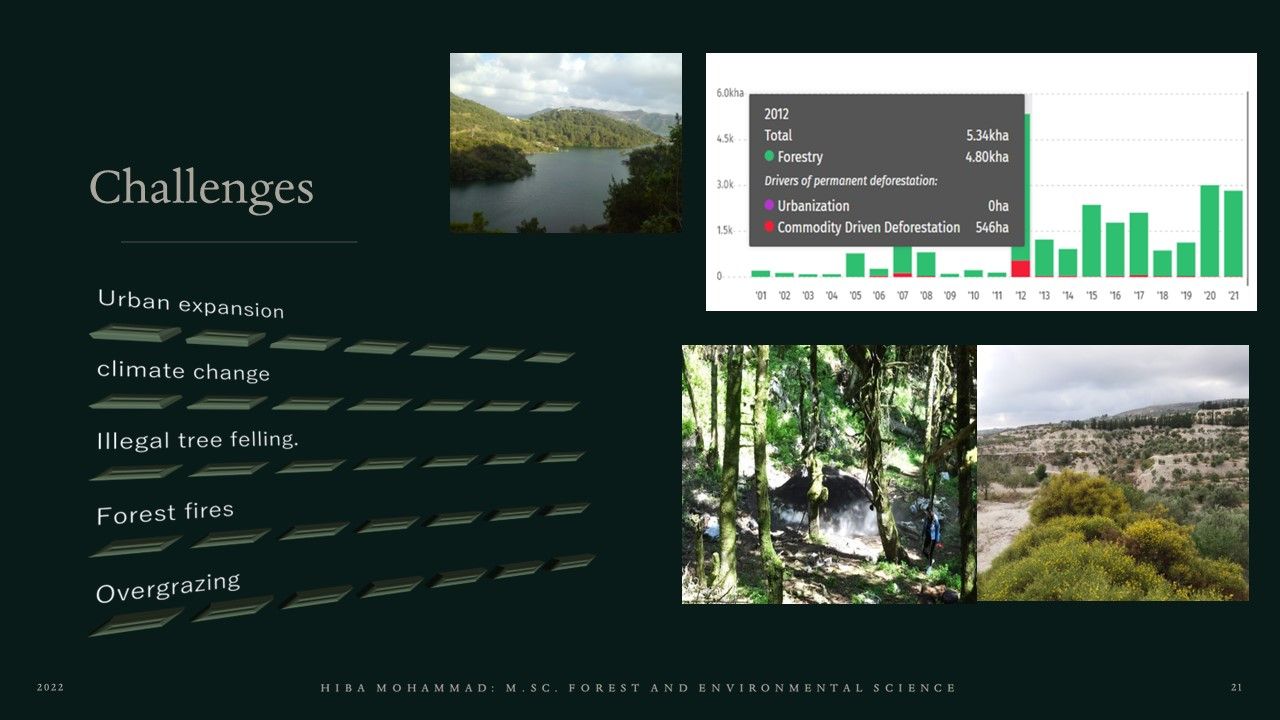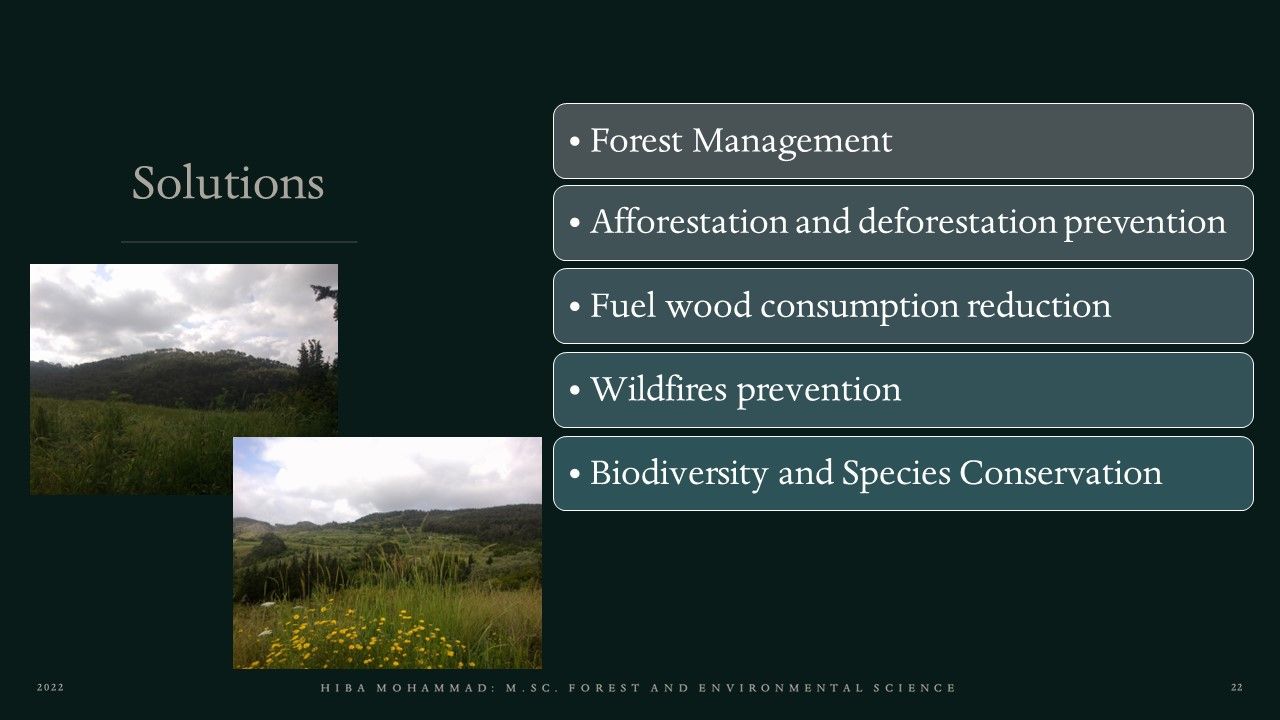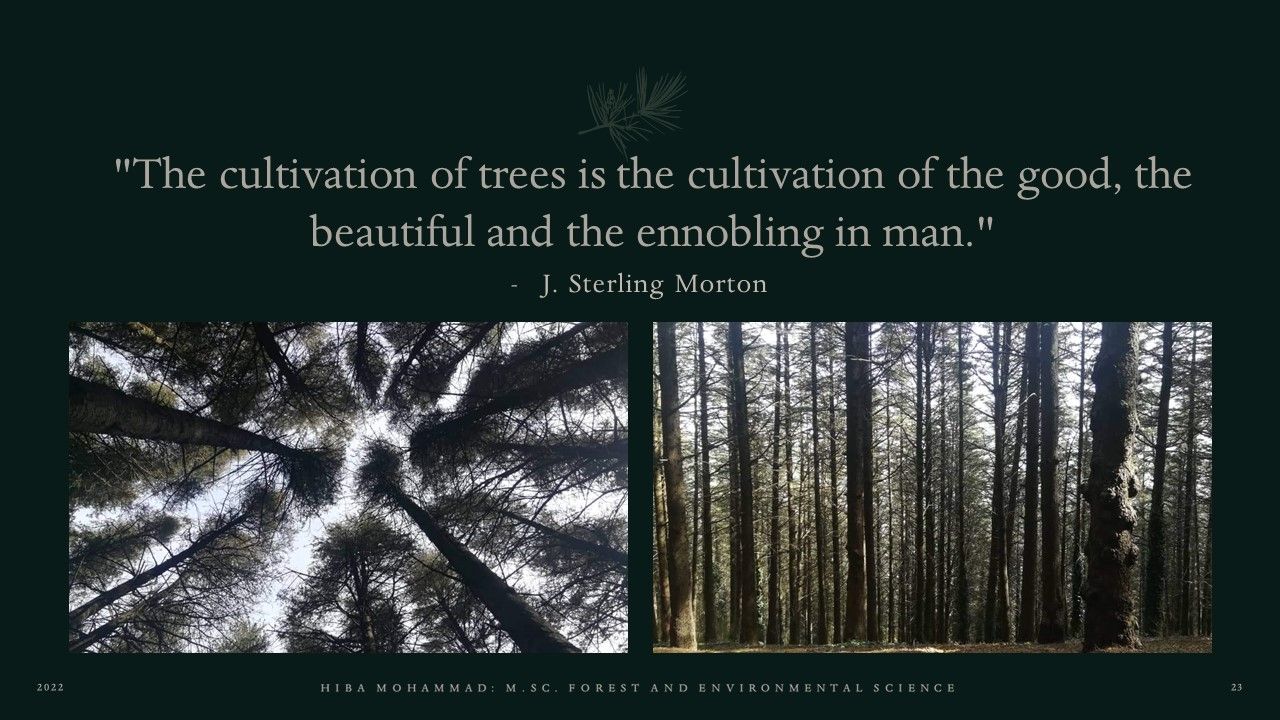Forests in Syria and their primary role to achieve SDG15

This article is based on my presentation that was hosted by Environfocus on 15 September 2022.
“Leave no one behind” was the ambitious promise of the 2030 Agenda for Sustainable Development which went into force in January 2016. Comprising 17 goals and 169 targets, it is an all-inclusive comprehensive blueprint for action to protect the planet and ensure overall peace and prosperity. That includes themes such as climate change, economic inequality, innovation, sustainable consumption, and peace and justice, among other priorities.

Sustainable management of FORESTS has been explicitly acknowledged within SDG15,
In order to acknowledge their significant role in sustaining food security, regulating the water resources, and mitigating climate change, in addition to providing an economic aspect with a variety of other ecosystem services. This will benefit the 1.6 billion people who rely on forests for their way of life. About 70 million Native Americans are included in this.

The 2022 Syrian SDG Index and Dashboard comprises 110 indicators covering the 17 SDGs

Syria as a poor and conflict-affected country faces the highest risk of falling behind with an average score of 58 out of 100.. Overall, Syria received ‘red’ score in almost half of all the 17 SDGs, indicating that they are far from achieving these goals. Which reveals that Syria will require tremendous efforts both domestically and by their regional and international partners to ensure they are not left behind.

There is an increased risk of further deforestation and associated biodiversity loss, as certain groups of the population are losing their jobs and income and are turning to forests and forest products for food and fuel, putting more pressure on forest resources. Subsequently, wars, forest fires, unsustainable practices, demographic expansions and urbanization cast their shadows over the remaining Syrian forests.

Strengthened monitoring of the forest ecosystems and enforcement to restrain illegal activities and providing a proper support to the most vulnerable are essential measures to mitigate the deforestation and degradation. More efforts to sustain forest ecosystems as well as their social, economic and environmental functions should be pursued.

When it comes to finding answers to disasters like the COVID-19 outbreak, forests are crucial. They serve as safety nets for the most vulnerable members of society, giving them food, shelter, and money during times of famine and scarcity and boosting their resilience in the process.
Another way to ensure that no one is left behind is to cultivate the woods sustainably.
